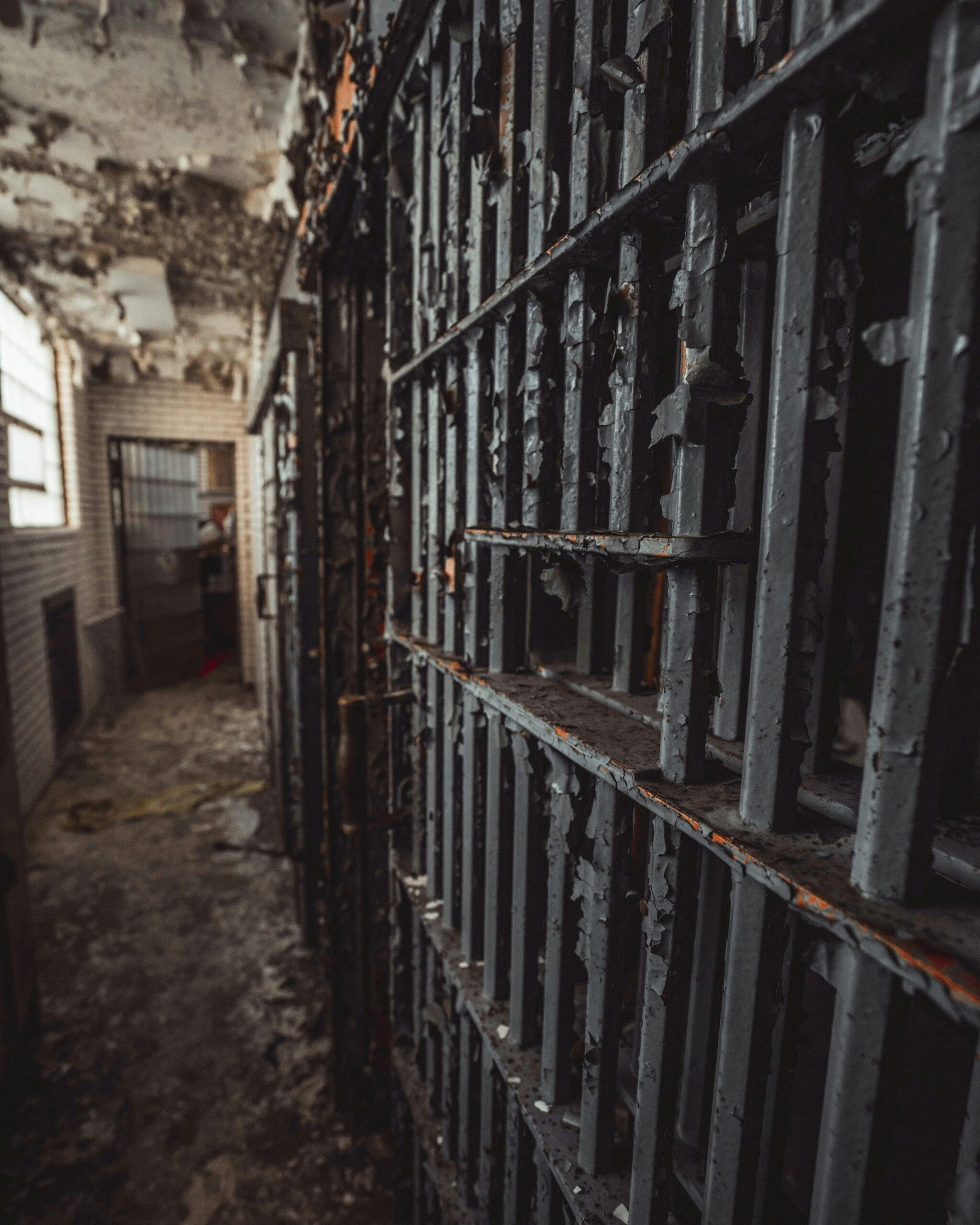Understanding my grief is understanding me. I have a peculiar job: I’m a therapist to men in level two and level five prisons. The level two prisoners are the safer or high-functioning prisoners who can be trusted to make food, care for the grounds, and act as porters (cleaners) for the rest of the prison. Level five prisoners spend all day in their single-man cells.

I lie to myself, which isn’t healthy. I tell myself, “I don’t care what people think.” But I do.
I am a recovering “people-pleaser.” I say I “like” to make others happy, but for most of my life, it was a “need.” This dysfunctional perspective doesn’t work well in marriage. I loved making Deb happy, but when she was disappointed with me, I’d take it as rejection and push back at her, blaming her for “demanding too much.” Thus, I blame her for not accepting my attempt to manipulate her for approval. She hated it. So, it didn’t work.
The growth in marriage prepared me for growth in my career. I was fired from an insurance company, so I took the only ligament job I could find – with the Michigan Department of Corrections (MDOC). I became a QMHP (Qualified Mental Health Professional). I don’t know who came up with this stupid name, but all it meant was that I was a therapist for prisoners. When I was hired, I can genuinely say I was not ready for this.
Deb summed it up best when she said this job would either make or break me. She implied that by making me, I would become a more muscular man and more confident in my faith and myself. By breaking me, she meant I’d end up in a psychiatric facility for a week after trying to kill myself. Two extremes.
I had to develop very thick boundaries to push back on prisoner demands. To say I had to “adjust” my emotional bandwidth to function in this violent and oppressive setting would be an understatement. I had to learn to be OK with people hating me. Fortunately, God provided a few good men to step into my life and remind me of my battle.
Then, questions began to arise. Like many staff members, I could harden my heart and “just do the least,” or I could become “overly familiar” with these master manipulators and end up doing something illegal. I care for prisoners while saying no all the time. I guess the question is, how can I serve God (care) while having boundaries (saying no)? Could I impact their destroyed lives and be considered useful for the time I invested in them?
I had to learn to let people get mad at me. This is no small task for a people-pleaser. Having someone yell terrible, demeaning, and accusing things at me as I tried to “help” them was beyond me. I wanted to quit many times but didn’t.
It took a few years of work, prayer, support from men inside and outside the prison, and learning who I was before God before I found that balance. Now, I’m OK with people hating me. I can handle rejection. This is all because of Jesus. I worked hard and failed many times, but he gets the credit.
As my supervisor suggested, the mental health team had to “reparent” these men. Their lives have been so traumatized that they need to be back to the basics. Their criminal thinking patterns and many in these men’s lives have destroyed them. It’s hard to know where to begin when you encounter a forest fire (especially one that’s mad at you).
Answer: Clarify personal responsibility. That’s what parents do with children. These men are responsible for their actions. This is foundational. The more they blame, the farther these men are from change.
Emotions are real. Ignoring them tends to make them blow up. And then they begin to control us. Denying them typically leads to violent behavior. It should be noted that nice prisoners go to level one prisons. You might have to go to a level two prison if you get kicked out. If you get kicked out of a level two prison, you may find yourself in a level four prison with fewer freedoms and a two-man cell. For those who get kicked out of level four, you find themselves at the bottom of the barrel, level five. There are three level-five prisons in the state. With good behavior, you may get out of level and give in about a year and a half. So, I work at one of the worst prisons in the state.
It should also be noted that these traumatized men (still responsible for their actions) universally had little education and did not believe in the science of psychology. So, part of my job is to sell psychology, which means that how you look at a problem can impact how you handle a problem. This is a hard sell.
Traumatized men are hyper-focused (and hypervigilant) on the external. They will do whatever needs to be done to be safe, which usually includes violence. Psychology, on the other hand, is about changing ourselves, not others. These two viewpoints collide in counseling. The prisoners state, “If you care, you will change my situation.” But my message is, “I can’t change your situation, but I can help change how you handle this situation.” In level five, the typical response is defensiveness, “What you think I’m stupid? You think your smarter than me?”
Without insulting, I ask, “So how is your plan working?” Instead of seeing the obvious, they defend their actions and blame me for not understanding. If people do work themselves to a lower level, the answer is often “they got lucky,” not that they worked hard for a long time to get their points down.
I’ve learned that their argument isn’t with me; it’s with reality. I’ve learned not to take their rejection personally. Success is when a prisoner says, “I am my own worst enemy.” When these few victories happen, I applaud them and say, “Now we can start!”
Satan, the Accuser
Before the prison, I thought Satan’s name, “accuser,” was a weak one. I mean, who cares if someone accuses you? Is that all that Satan does? Isn’t that a trifle? But after working there, I’ve learned how an accusation can undermine a person’s dignity. On level five, prisoners are behind locked cell doors in a room the size of a closet, one row of cells about ten feet apart, facing each other. They live there twenty-two hours a day. Food is brought to them and delivered through a slot. So, these unhealthy men have nothing to time on their hands. Some yell at one another out of boredom, some out of fear. Most engage in “political activities,” which is code for gang activities, where people higher in the gangs command the lower “foot soldiers” to carry out hits. It’s pretty unhealthy, anyway you look at it. “Loud bullying” is the most common game played and stories glorifying drugs, sex, and violence.
When a “psych” (or mental health professional) walks on the rock to talk with a prisoner, we become “easy bait.” It can be brutal to any person who is concerned about their integrity. I can’t tell you how often I felt oppressed after walking through. I think it’s spiritually oppressed. They flex their power, yelling cruel statements at the therapist, sometimes just for fun. It’s kind of like a sick “reality show” played out in front of prisoners. They don’t care if it hurts us. The more it hurts, the more entertaining it is.
There are Satanic pentagrams painted inside some of these closet-sized cells. I don’t think these men understand the powers they are playing with or the weight of their actions. Some rebel because “it’s cool,” some are mad at God, and most are mad at all authority. And if you think about it, who is a greater rebel than Satan?
I’ve heard non-Christian staff who don’t believe in God admit there is such a thing as “evil” after being in our segregation units.
A Big God and a Lot of Prayer
As you can imagine, most people-pleasing mental health providers would have nothing to do with a place like this. I understand that. I did so only because I needed a job to support my family. Deb said the prison would either “make or break” me, meaning I would end up at a psychiatric hospital or become a more resilient man. So far, I haven’t gone to Pine Rest, so I think I’ve fallen into the latter category. I had to become comfortable with being hated, sometimes by prisoners, sometimes by officers, sometimes by other mental health professionals. I had to be confident in what God thinks of me. I had to let the lies of others roll off like ducks off the back of water.
This was only done because I have a big God, and I did a whole lot of prayer. Now that Deb is gone, my work is my primary social connection. If God hadn’t adjusted my disordered passions, I could not have held together. I think God is using me here. I think he is using me to impact prisoners for good. God asked me to do this, and some prisoners have shared how God is using me in their lives.
Jesus has taken me from the pit of self-indulging self-pity and allowed me to feel secure in the chaos of an oppressive environment. He allowed me to be broken to remold me into someone strong. I hated working at the prison, but now I feel peace when I go there. It’s good to be in God’s will, even if it’s a prison.
